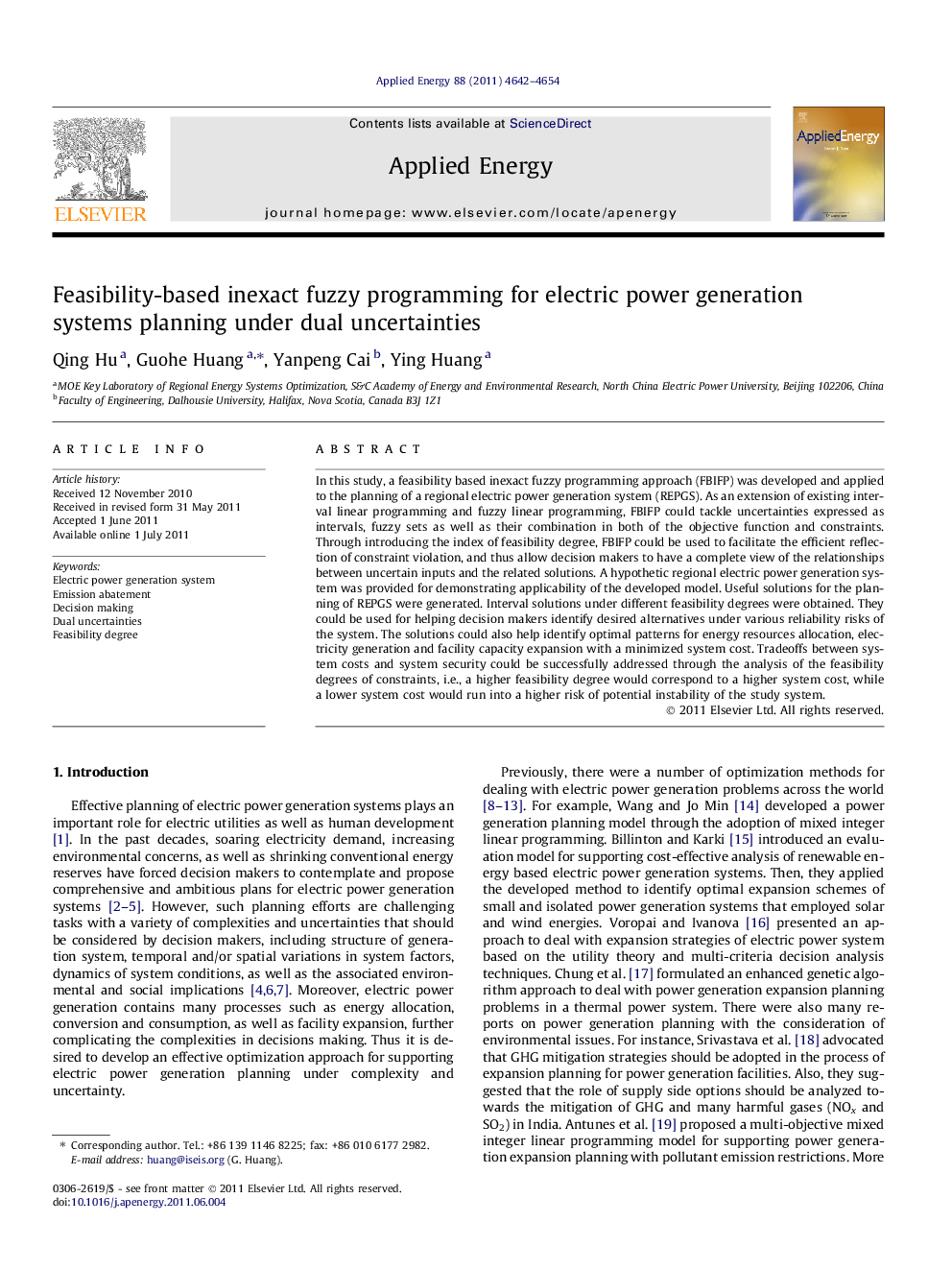| Article ID | Journal | Published Year | Pages | File Type |
|---|---|---|---|---|
| 243985 | Applied Energy | 2011 | 13 Pages |
In this study, a feasibility based inexact fuzzy programming approach (FBIFP) was developed and applied to the planning of a regional electric power generation system (REPGS). As an extension of existing interval linear programming and fuzzy linear programming, FBIFP could tackle uncertainties expressed as intervals, fuzzy sets as well as their combination in both of the objective function and constraints. Through introducing the index of feasibility degree, FBIFP could be used to facilitate the efficient reflection of constraint violation, and thus allow decision makers to have a complete view of the relationships between uncertain inputs and the related solutions. A hypothetic regional electric power generation system was provided for demonstrating applicability of the developed model. Useful solutions for the planning of REPGS were generated. Interval solutions under different feasibility degrees were obtained. They could be used for helping decision makers identify desired alternatives under various reliability risks of the system. The solutions could also help identify optimal patterns for energy resources allocation, electricity generation and facility capacity expansion with a minimized system cost. Tradeoffs between system costs and system security could be successfully addressed through the analysis of the feasibility degrees of constraints, i.e., a higher feasibility degree would correspond to a higher system cost, while a lower system cost would run into a higher risk of potential instability of the study system.
► A feasibility based inexact fuzzy programming approach (FBIFP) was developed. ► FBIFP was applied to a regional electric power generation system planning. ► Dual uncertainties could be reflected. ► Optimal system planning schemes could be generated. ► Tradeoffs between system costs and system security could be addressed.
